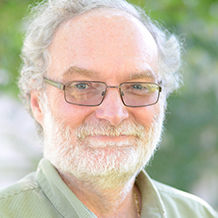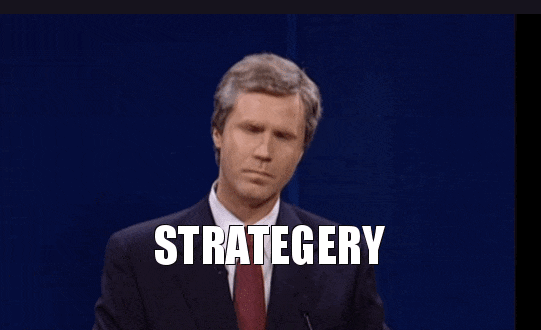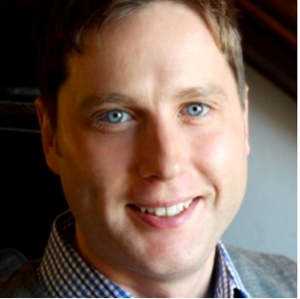Michael Roloff received his Ph.D. in Communication from Michigan State University. He joined the faculty at Northwestern in 1978. Michael Roloff’s research and teaching interests center around interpersonal influence. He has published articles and offers courses focused on persuasion, interpersonal compliance-gaining, conflict management, organizational change, and bargaining and negotiation. His current research is focused on conflict avoidance and serial arguing in intimate relationships, the interpretation and construction of persuasive messages, and the effects of planning and alternatives on negotiation processes. This is his 33rd year teaching for MSC and 38th year teaching at Northwestern.
Michael Roloff’s research and teaching interests center around interpersonal influence. He has published articles and offers courses focused on persuasion, interpersonal compliance-gaining, conflict management, organizational change, and bargaining and negotiation. His current research is focused on conflict avoidance and serial arguing in intimate relationships, the interpretation and construction of persuasive messages, and the effects of planning and alternatives on negotiation processes. This is his 33rd year teaching for MSC and 38th year teaching at Northwestern.
How are MSC students different from your other students?
Their motivation. For undergraduates, class is usually their first exposure to anything in depth. So when it comes to things like organizational change, you can only make them more familiar. When you go to PhD level, most students just want to do research. MSC students, however, are very interested in application and how they can use this stuff. They have a wealth of background because they are out there working on the experiential level. They want to know what they can do on the job that can make a difference. They have the knowledge base and the broader interest, which is lacking at the PhD and undergraduate level.
Was this new to you?
I expected it because when I was in graduate school, I took a job teaching army recruiters. They wanted to know about applied persuasion and how to get someone to join the army. Thus, I knew going into teaching for MSC that there were people out there who didn’t exist in university settings and who were interested in ideas that worked and were applicable to their context. It was refreshing when I got back into teaching.
Can you talk a little bit about the class you teach for MSC and the main takeaways for your students?
I teach Change Management. It’s basically organizational change. In the first part of the course I work on persuasion, attitude change, and bargaining negotiation. In the second half of the course, I talk about change strategies, reactions employees have to change, and how people can resist change. In terms of my goals, I want students to get important research based information they can use. I also want to make it entertaining. The course is incredibly cathartic, and I get a chance to rant and rave about the injustice in the workplace and they get a chance to rant the same way to me. There’s a tension in organizational change. Organizations obviously have problems, but the problem is change agents approach it in an unrealistic way. Anything you do has costs to it, and one problem is we don’t always look at the costs of change, but just its benefits.
Plus another problem I try to stress with students is that there aren’t that many new ideas. Every generation suffers from the problem of thinking that they’re doing something new. We’ve been such change oriented and addicted. Organizational change and innovation has such a positive connotation. If we’re not doing something, it’s because we’ve already done it. What has happened is people change the titles and labels. If you’re an old buffalo, it’s easy to detect if a bad idea is coming back. If you don’t have the experience, you can’t recognize it’s a camouflaged pack.
So I do a lot of stuff like that. It’s really me just trying to be grounded. It’s not all dark. Almost any organizational change structure will work in the right circumstances. The challenge is figuring out what those circumstances are.
I have done some consulting with corporations and I’ve read a lot of papers about failed organizational change. Some of what I teach is based on direct experience, some is vicarious, and some is just my own research. My research is generally focused on how you influence people, persuasion research, bargaining and negotiation research, and conflict research. But I am not solely interested in organizational change.
All the assignments are applied, so students write two papers and ask them to take a failed organizational change that they’ve heard about, experienced, or have been in charge of. They take some aspect of the perspectives we talk about and devise a plan that would’ve worked. I take a very pragmatic approach. I want to know what their goals were, why they were trying to create the change, what they did wrong, what class indicates they should’ve done better, and how they know whether it would work.
One of the best comments I’ve ever gotten from a student at our last class last year was: “When I came in here, I thought anyone who opposed change was just a curmudgeon, or some old nasty person. After spending 10 weeks in your class, I’m beginning to wonder if the people who are promoting change are just in it for themselves. These are the people we should be especially concerned about.” I immediately went, “I’ve accomplished my goal! I’ve made you even handed.” Because that’s my ultimate goal for my students: they’ve got to learn how to figure out the strengths and weaknesses of both sides when thinking about change.
What makes Northwestern MSC different from other Masters in Communications programs?
Many programs are very narrow in their focus. There was a time when many communication departments were eclectic. Yet, over the last 10 to 15 years, departments have become more narrowly focused. I believe this is under the change mantra: if you can’t do everything well, do one thing well.
The MSC program is the one program where we haven’t gotten that narrow. It is more eclectic. It’s the one program where various faculty members work together when they normally don’t work together outside of MSC. It’s truly interdisciplinary. I have MSC colleagues who don’t do anything like my research, but we can put together something that works.
We also have very broad programming, so we get a combination of people in various markets. All our students are smart, willing to put in extra time to get things done, and very interested in application.
Any generally interesting or unique research or projects that you specifically have been working on through the program that alumni or prospective students might like to know about?
I just finished directing dissertations. We’ve done a lot of studies focused on serial arguing: the tendency of people in relationships to argue about same things over and over again. A lot of the research is focused on how it makes them physically sick, and how conflict can adversely hurt your health. For example, it takes longer for a cut to heal if you just had an argument with your significant other versus a pleasant experience.
For organizational change at the undergraduate level, we also look at how organizational stress and health problems emerge. We explore presenteeism, and the problem of sick employees dragging themselves to work instead of staying home. Organizations are put in positions to convince employees it would be a good idea to not come into work sick.

 Michael Johnson is the Associate Director of External Programs, Internships and Career Services (EPICS) for the MSC program. In this role Michael provides career coaching for students and alumni of the MSC program. He also provides specific programming for students throughout the year including webinars and lunch presentations on a number of different career related topics. He began working with the MSC program in January of 2016.
Michael Johnson is the Associate Director of External Programs, Internships and Career Services (EPICS) for the MSC program. In this role Michael provides career coaching for students and alumni of the MSC program. He also provides specific programming for students throughout the year including webinars and lunch presentations on a number of different career related topics. He began working with the MSC program in January of 2016.
 Each of the communication classes you take while an MSC student can benefit you professionally. There are several MSC courses that are continually popular with students and alumni. But I’d venture to say that each MSC course pushes students to continually refine their communication skills and directly implement them into their careers.
Each of the communication classes you take while an MSC student can benefit you professionally. There are several MSC courses that are continually popular with students and alumni. But I’d venture to say that each MSC course pushes students to continually refine their communication skills and directly implement them into their careers. 